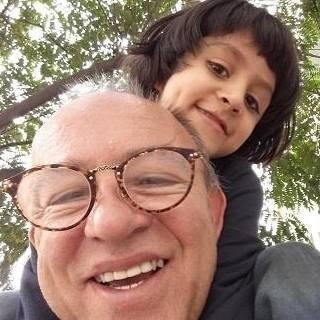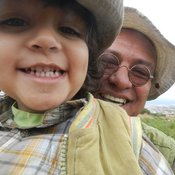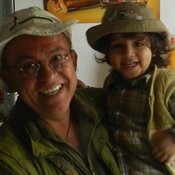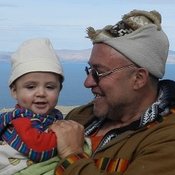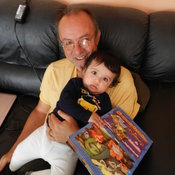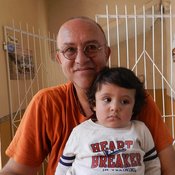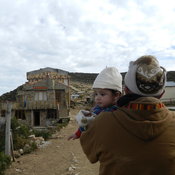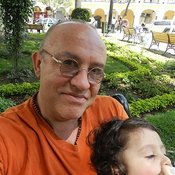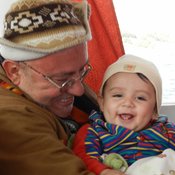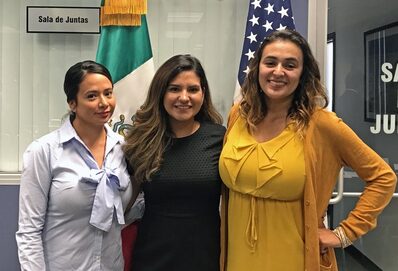 My understanding of the social work profession and its core values, at least the part on which I focus, is helping the weakest and most vulnerable members of our society to cope, surmount challenges, and overcome diversity in sustainable ways that build bridges to healthier social interactions and lifestyles. My own principal focus is on the military and I am applying to the University of XXXX to earn my MSW primarily because of your well-developed specialty in Social Work; and the fact that you are a well established leader in the area of social work education online.
My understanding of the social work profession and its core values, at least the part on which I focus, is helping the weakest and most vulnerable members of our society to cope, surmount challenges, and overcome diversity in sustainable ways that build bridges to healthier social interactions and lifestyles. My own principal focus is on the military and I am applying to the University of XXXX to earn my MSW primarily because of your well-developed specialty in Social Work; and the fact that you are a well established leader in the area of social work education online.
The social work profession to me is a very professional and respectable profession. Social workers assist people on everyday life issues that people need assistance or can’t cope with. Many people turn to social workers for diagnosis or treatment. The core values of social work to me are selfless service, integrity, and competence. Throughout my military and law enforcement career, I have lived those core values. I have placed my life in danger so that the people who cannot adequately defend themselves or protect their own interests.
I see a vast continuity between my military service on the one hand, and my goals in social work on the other, both as an MSW student at UXX and beyond as a Social Work professional gradually assuming increasingly levels of responsibility after having an opportunity to prove myself in the years that follow my graduate education. My self-understanding as a soldier, the role to which I have always aspired in the military has been that of a champion of the weak and vulnerable, those unable to adequately defend or care for themselves. And this is very similar to the understanding of self that I have in mind for my future in social work. It is the nature of the need itself that inspires and defines the mission.
Both an Iraq veteran and a Police Officer patrolling an urban area with higher- than-average concentrations of homeless people, I have become increasingly concerned for the well-being of our mentally ill population in general, and our mentally ill homeless veterans on the other. In Law Enforcement, I have dealt with many people suffering from one or more mental illness. As a police officer, I have personally taken scores of mentally ill people to a hospital. Often, I see the person out on the street the next day; and I am concerned that little to nothing is being done to provide care and assistance for this individual who is in desperate need of help.
The fact that this need tends to have a very heavy focus among our veteran population underscores the urgency of the issue and its importance for our very understanding of who we are as a society, if we are unable to care for those who put their lives on the line for our common security. It pains me deeply to see these needy people simply turned out the door with little to no help at all. After having returned home from military service, they are not provided with the resources that are necessary for them to cope and heal from the wounds of war. The plight of our homeless veterans is as much an economic as a political issue, and I look forward to a long lifetime of advocacy and in fact militancy on behalf of our homeless, mentally ill veterans who need our support.
Frankly, I feel strongly that our system fails many if not most of our mentally ill veterans and I want to devote the balance of my life to social work with an active engagement in the area of homeless veterans. One central problem is the fact that there are simply not enough social workers to conduct follow up appointment to make sure the patients are taking their medication or are receiving treatment. I try to go that extra mile in my law enforcement profession as frequently as possible to stay in touch with mentally ill veterans and to check up to see if they are making their mental health appointments, even though this is not, strictly speaking, part of my job description. The reality is that I am a police officer who wants very much to achieve a successful career change to social work. I see PTSD as especially debilitating for veterans and I hope to develop a lifetime focus in this area as a social worker as well, staying abreast and hopefully someday contributing to the literature about PTSD and homelessness.
My professional record speaks to my lifetime ethic of public service. As I have matured as a professional, especially these last few years as a police officer, I have come to see with ever greater clarity, to feel in my heart a calling, a vocation, and a mission on behalf of the mentally ill; not as a psychologist but as a social worker.
A veteran of combat scenarios myself, I understand PTSD through up close and sustained contact with those afflicted and I can relate to soldiers who return from combat action. I too know what it is like to put in one’s time in a place like Iraq, as an infantryman, with explosive devices blowing off limbs all around me and a sense of moral quandary dogged by unavoidable scrutiny of the question of why we were even in Iraq.
I learned a lot about diversity, sacrifice, discipline, and opportunity as a result of spending 12 years in the California Army National Guard which included a lengthy deployment to Iraq as an infantry sergeant. My experience in Iraq will always be with me; and I consider myself fortunate to not have suffered personally from the acute mental health symptoms that have been manifest in so many of my peers, and many of my own comrades, following our re-insertion into civilian life.
My undergraduate studies in the area of Criminal Justice Management will also be very helpful at propelling me forward to become a highly effective social worker and advocate for my clients, all too many of whom have long histories of interaction with law enforcement, in and out of jail, always living on the cusp of freedom. What I find most singularly important is the way in which the USC School of Social Work is dedicated to providing excellence in graduate education for people who are destined to serve on the front lines of progressive social change.
My special interests lie in the cross-over between mental health issues on the one hand, and social problems on the other, especially as concerns our veterans. Challenges related to alcoholism and substance abuse, perhaps especially illegal drugs, also tend to be way over represented among our veterans, and this continues to be the case as they age. There will be soldiers, marines, seamen, and airmen who suffer from PTSD in our foreseeable future, as a result of combat experiences overseas. The complex relationship between drug abuse and military service stands at the core of the area in which I seek to excel as an MSW student at UXX.
I also fully intend to continue and even cultivate my ties with the law enforcement community as a social work professional; serving as a Reserve Police Officer so that I can dedicate myself full time to social work. I feel strongly that this crossover of a law enforcement professional to a career in social work is healthy in several important ways, helping to foster and encourage a dialogue between law enforcement and social work characterized by a sharing of concerns and brainstorming together with respect to solutions to common problems.
I feel that I am an especially good fit for the UXX School of Social Work because of my military experience and my special concern for homeless veterans. Pursuing the MSW online will enable me to continue in my present position as a police officer at the same time that I make progress towards earning my MSW. Thus, I will be able to provide for my family financially and pursue my education in social work at the same time.
Finally, America in general and California in particular are rapidly becoming fully bilingual polities. Thus, since my father is from Panama and my mother from Peru, I feel that I have much to contribute in terms of diversity towards caring for and honoring our veterans who gave so much and suffer as a result of their sacrifice. I could not feel more strongly that we owe them more and I want to serve in this struggle to care for and honor my fellow soldiers who have served, and those that will continue to serve in the wars of tomorrow, for the balance of my professional lifetime.
I thank you for considering my application.

